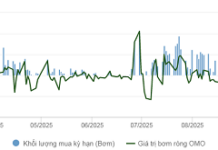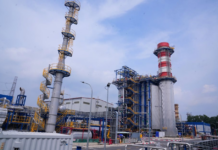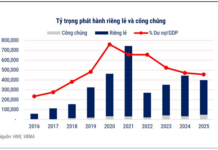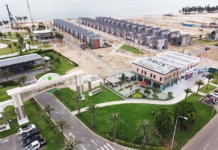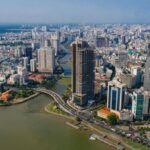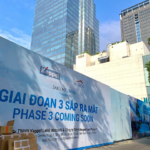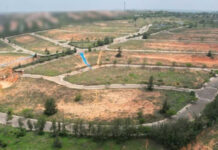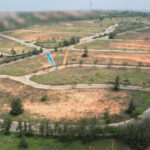On October 13, the Ho Chi Minh City Institute of Natural Resources and Environment submitted a proposal to the Prime Minister and the Ministry of Agriculture and Environment, advocating for the retention of the current Land Registration Office model and the implementation of a property tax rate to curb speculation.
According to the Institute, as the 2024 Land Law undergoes review and adjustments to address outstanding issues, maintaining the Land Registration Office system is essential to ensure stability in land-related procedures.
Local authorities at two levels are currently facing challenges due to staff unfamiliarity with new policies and models, while the digitization of land data as per Articles 163-166 of the 2024 Land Law is still in its early stages.
The land database compilation process, jointly conducted by the Ministry of Public Security and the Ministry of Agriculture and Environment over the past 90 days, remains incomplete. Therefore, altering the model at this juncture could lead to disruptions.
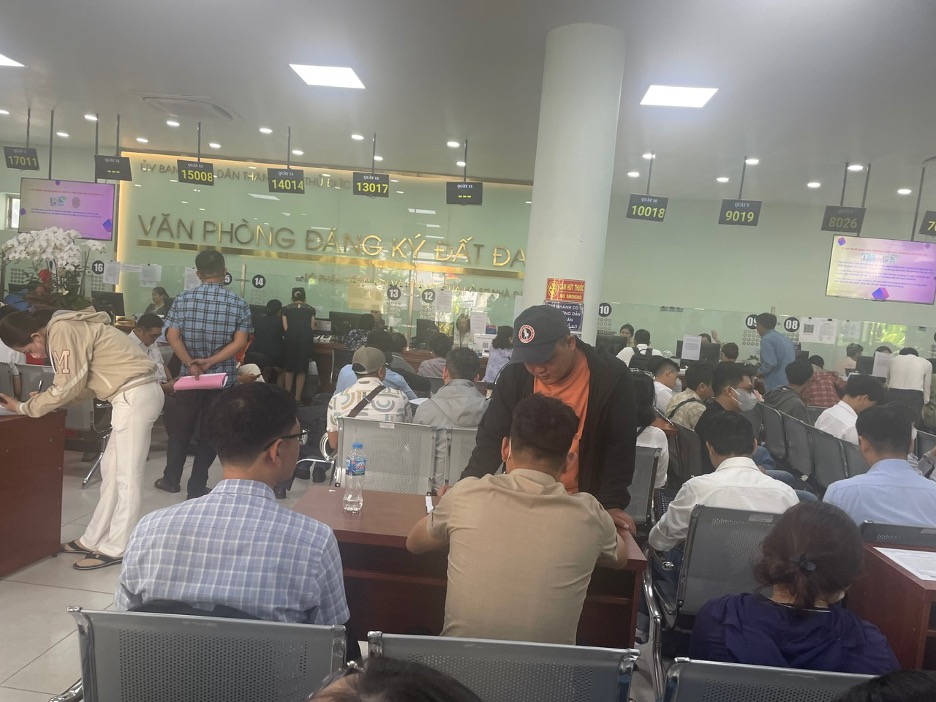
A crowded Land Registration Office in Ho Chi Minh City
The Institute’s assessment highlights that the current Land Registration Office system operates smoothly, maintains high security, and demonstrates robust data management capabilities. The staff is well-versed in their duties, ensuring efficient service delivery to citizens.
Implementing the Ministry of Agriculture and Environment’s proposal to dissolve Land Registration Offices by October 15, 2025, and transfer responsibilities to commune-level authorities would pose significant challenges, particularly in densely populated areas with extensive data volumes like Ho Chi Minh City and Hanoi.
The Institute argues that Ho Chi Minh City is currently focused on three critical tasks: finalizing administrative boundary data post-merger, cleansing land data within 90 days, and digitizing plot and parcel information in the national database. Without ready digital infrastructure and specialized training for commune-level personnel, immediate transfer of land management responsibilities could cause bottlenecks and inconvenience citizens. Therefore, the Institute recommends delaying the transfer of Land Registration Offices to commune-level authorities until the national database is complete and digital infrastructure is fully deployed.
Previously, the Land Management Department (Ministry of Agriculture and Environment) proposed transferring the functions of Land Registration Office branches to commune-level authorities, aligning with the two-tier local government model.
In its submission to the Ministry of Agriculture and Environment, the department reported that 34 provinces and cities nationwide have established 703 Land Registration Offices under the Department of Agriculture and Environment, employing a total of 16,683 staff members. Among these, approximately 12,600 personnel at branch offices handle the majority of land-related administrative procedures for citizens and businesses.
To uphold the “one level, one focal point” principle in processing land files, the Land Management Department recommends maintaining Land Registration Offices under the Department of Agriculture and Environment, responsible for developing, updating, and operating provincial land databases. Concurrently, the department proposes transferring branch functions to commune-level authorities, aligning with the two-tier government model through two approaches.
Uniting Vision and Ambition: The Inaugural Post-Merger HCM City Party Congress
The 1st Congress of the Ho Chi Minh City Party Committee (term 2025-2030) marks a pivotal new development stage as Ho Chi Minh City, alongside Binh Duong and Ba Ria – Vung Tau, unites to form an open urban region for the first time. This strategic move aims to establish the area as a leading financial and creative hub in the region.
Industrial Ecosystem Linked to Seaports Propels Ho Chi Minh City to Regional Prominence
Unlocking its full potential, Ho Chi Minh City must harness the power of an industrial belt seamlessly integrated with seaports and a synchronized logistics network. This strategic move will propel the economic powerhouse to new heights, enhancing its competitive edge and enabling deeper participation in the global supply chain.
Văn Phú Expands Development into Southern Market
The Southern real estate market, centered around the emerging Ho Chi Minh City, is witnessing a significant investment surge from leading property developers. This wave is marked by a series of large-scale projects poised to transform the urban landscape entirely. This trend aligns with a strategic vision focused on critical transportation and infrastructure hubs within the city, aiming to redefine traffic flow and commercial dynamics across the entire Southern Key Economic Region.
Saigon Centre Secures Ho Chi Minh City’s Approval for Phase 3 Investment After Three Decades of Inactivity
Nestled in the heart of Ho Chi Minh City’s most vibrant intersection, Saigon Centre Phase 3 occupies a prime “diamond-grade” location. After over three decades of inactivity, this landmark project has recently been awarded an amended investment certificate, marking a significant milestone in its development.







